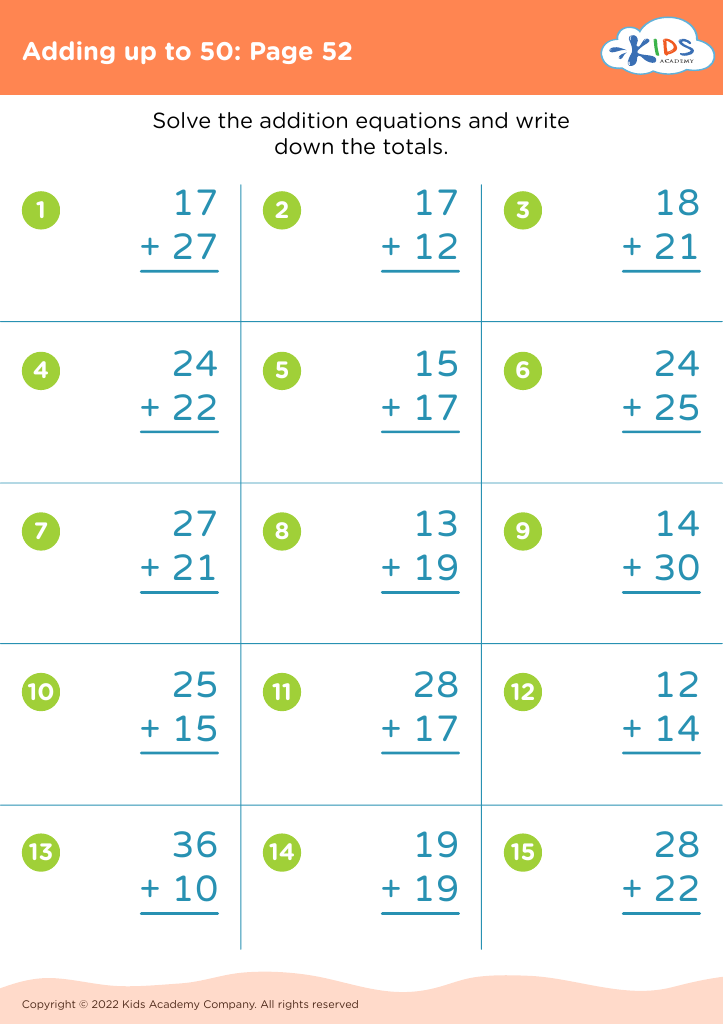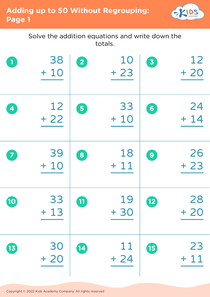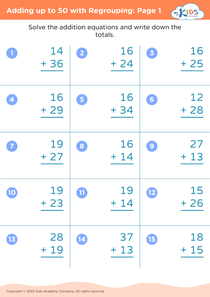Understanding symmetry Adding up to 50 Misc Worksheets for Ages 3-8
3 filtered results
-
From - To
Our "Understanding Symmetry: Adding up to 50 Misc Worksheets for Ages 3-8" offer young learners a solid foundation in essential math skills. These engaging worksheets focus on symmetry and addition up to 50, perfect for children aged 3-8. Through fun, hands-on activities, kids will explore the concept of symmetry, enhancing their spatial awareness and problem-solving abilities. The addition exercises are designed to build arithmetic skills incrementally, ensuring a balanced learning progression. Ideal for classroom or home use, these worksheets support diverse educational needs, keeping young minds challenged and excited about math. Download today to inspire your child’s mathematical journey!
Understanding symmetry, addition of numbers up to 50, and various other mathematical concepts at an early age are crucial for the cognitive development of children ages 3-8. Symmetry helps young children develop spatial awareness and a foundational grasp of geometry, which is essential for more advanced mathematical concepts they will encounter later. Recognizing symmetrical patterns trains their brain to see relationships and develop an intuitive sense of balance and proportion.
Adding up to 50 improves a child's number sense and mental arithmetic. It equips them with the ability to perform calculations quickly and accurately, a skill that will be repeatedly useful throughout their educational journey and daily life. Early proficiency in addition also sets the stage for understanding more complex operations such as subtraction, multiplication, and division.
The exploration of various mathematical concepts nurtures curiosity and develops problem-solving skills. Environments that incorporate diverse mathematical activities foster a positive and engaging attitude towards math, laying a foundation for lifelong learning and intellectual pursuit. Parents and teachers play pivotal roles in guiding these foundational experiences, ensuring children do not just learn mathematics mechanically but develop a true understanding and appreciation for it. Thus, investing in early mathematical experiences sets children up for academic success and opens pathways to multiple career opportunities in the future.
















